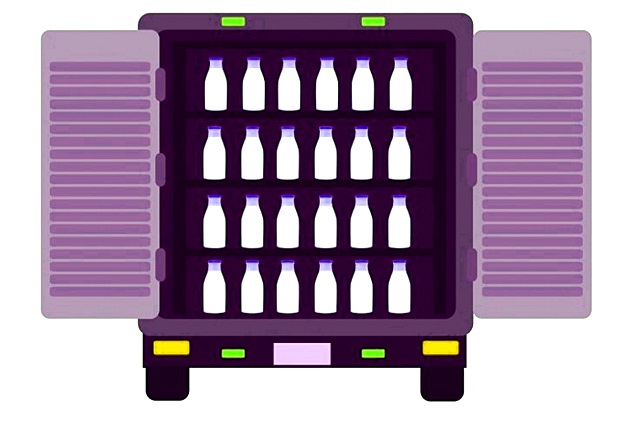1059

"For every person who has stopped ordering online, many others have started to do so," according to David Hedin from Euromonitor International, who spoke about the market research company's new e-commerce tool for the global FMCG industry.
A breakthrough
The solution, which provides quarterly updated online sales data by industry, category, company, brand, and retailer from 12 countries, is a "breakthrough" for Euromonitor. "We're putting something truly unique out there," said David Hedin, e-commerce project manager at Euromonitor International.
"When we look at the available data for the online space, it mainly focuses on daily funnel optimization, SEO, digital advertising, and tracking sales at specific retailers like Amazon."
"It's a huge challenge to create a sales tracking tool that is comparable between retailers, let alone countries, and that's exactly what we have managed to do." - David Hedin, Euromonitor International
According to Hedin, this is likely the first comprehensive attempt to size up online FMCG sales across over 400 retailers and over 80% of online sales.
"The activation factor is our ability to structure big data into our existing category taxonomy, rather than relying on each retailer's category tree, which makes it impossible to accurately compare sales between retailers," he added.
E-commerce remains a dominant force
The growth of e-commerce has slowed down from the early-decade surge when total retail sales increased from 15% in 2019 to 21% in 2021, largely accelerated by COVID-19-induced lockdowns.
Now, the segment stands at 22% of total sales, and Euromonitor estimates that it will remain a dominant force, accounting for 47% of retail growth by 2027. In 2022, electronics and appliances ($652 billion), fashion ($593 billion), and food ($349 billion) represented the largest online sales globally.
Within the food segment, buyers have increased the volume of dairy products they purchase through e-commerce channels, according to Euromonitor data. "Today, more dairy products are sold online than during the pandemic, indicating significant stickiness [when it comes to consumer shopping habits]."
"For every person who has stopped ordering online, many others have started to do so, and many have become long-term omnichannel shoppers," Hedin added.
Grocery stores surpass markets in dairy sales
In terms of dairy product sales, grocery chains have a competitive advantage over markets due to the cold chain logistics infrastructure of food chains, explained Hedin.
"A market may perform better in stable categories on the shelf, such as formula milk or shelf-stable milk, but refrigerated and frozen categories are the domain of food specialists," he said. "For example, Amazon leads in formula milk but only holds 1.2% in dairy products."
In the UK, supermarket chains Asda and Sainsbury's are neck and neck for the second spot in online shopping, revealed Hedin. "In Q4 2022, we saw Asda surpassing Sainsbury's in online dairy sales, while the latter remained a clear winner in plant-based dairy, even outperforming Tesco and Ocado for the whole of 2022."
In today's inflationary environment, shoppers are looking for cheaper retail options online, which means businesses need to be more adaptable than ever.
"Inflation means consumers are looking to save, and retailers who appear to have higher prices online than offline—or who charge high delivery fees—will struggle," he said. "We're already seeing fast retail suffering from this effect."
So, how could quarterly updated sales data for over 400 FMCG brands help retailers adapt to a continuously changing market? Hedin said that as a standard, the market research firm's solution provides sales information by categories, breaking it down by brands, companies, and retailers for any industry or country combination, e.g., dairy or dairy alternatives in the US.
"Is there a new start-up in your category? We'll be able to track their sales already in the next quarter, so you know if their new positioning and marketing are effective," Hedin explained.
"If a competitor is temporarily delisted from one of the grocery chains, the quarterly data allows management to enroll sales and marketing teams to take over online market shares and track their results both in pounds and in percentages for a fair assessment, regardless of general online trends."
Personal data will be monitored
Private sales data can also be monitored, for example, but the tool can go even deeper, depending on the specific needs of its users.
Euromonitor is also adding a new data feature to its tool to provide a more detailed picture of consumer shopping habits.
"You'll see the new e-commerce data feature in our future content, and we'll also produce focused content with granularity on the online space, combining e-commerce sales measurement with insights from Digital Consumer to understand how shoppers behave and what they expect from online stores."





